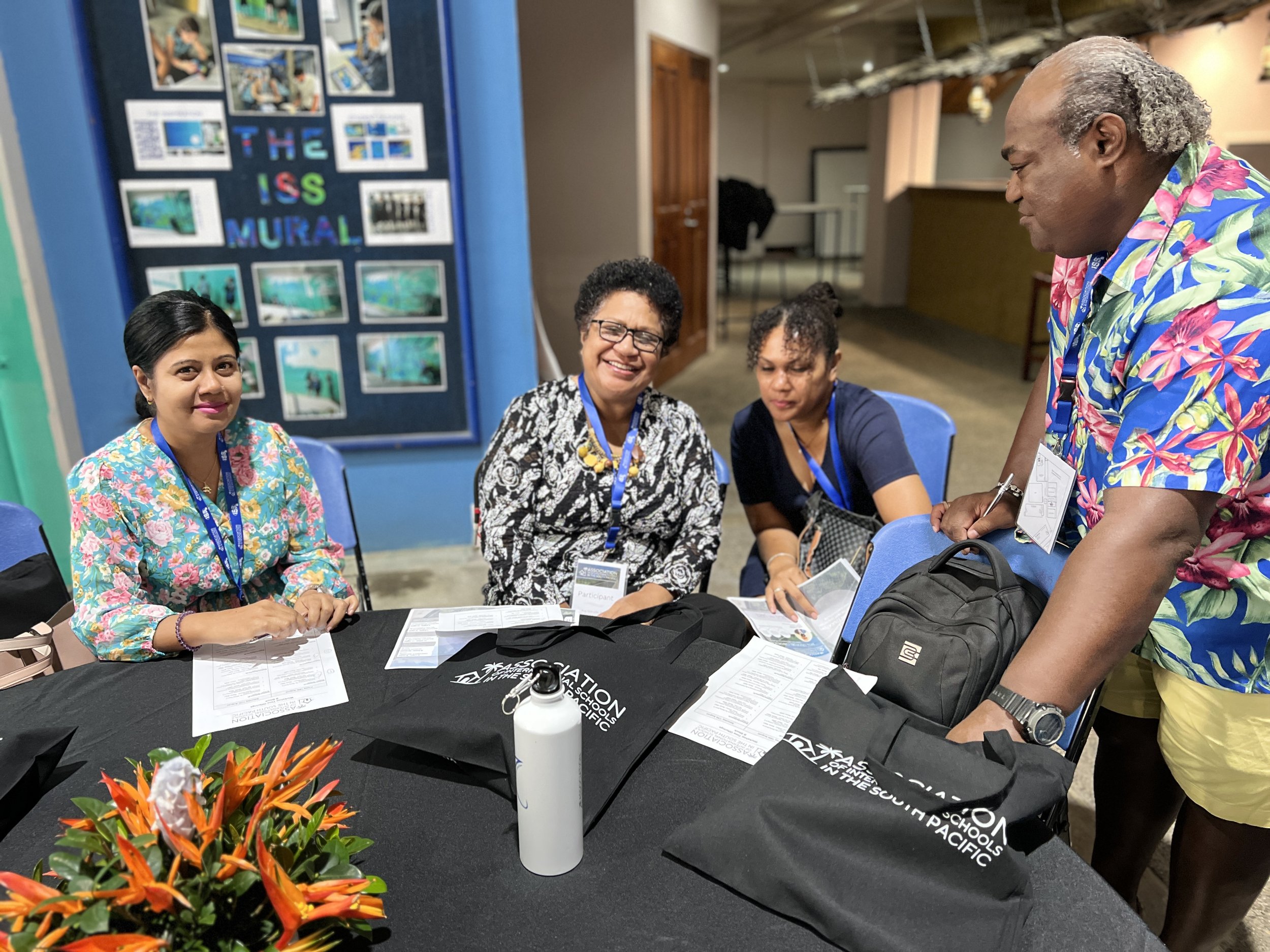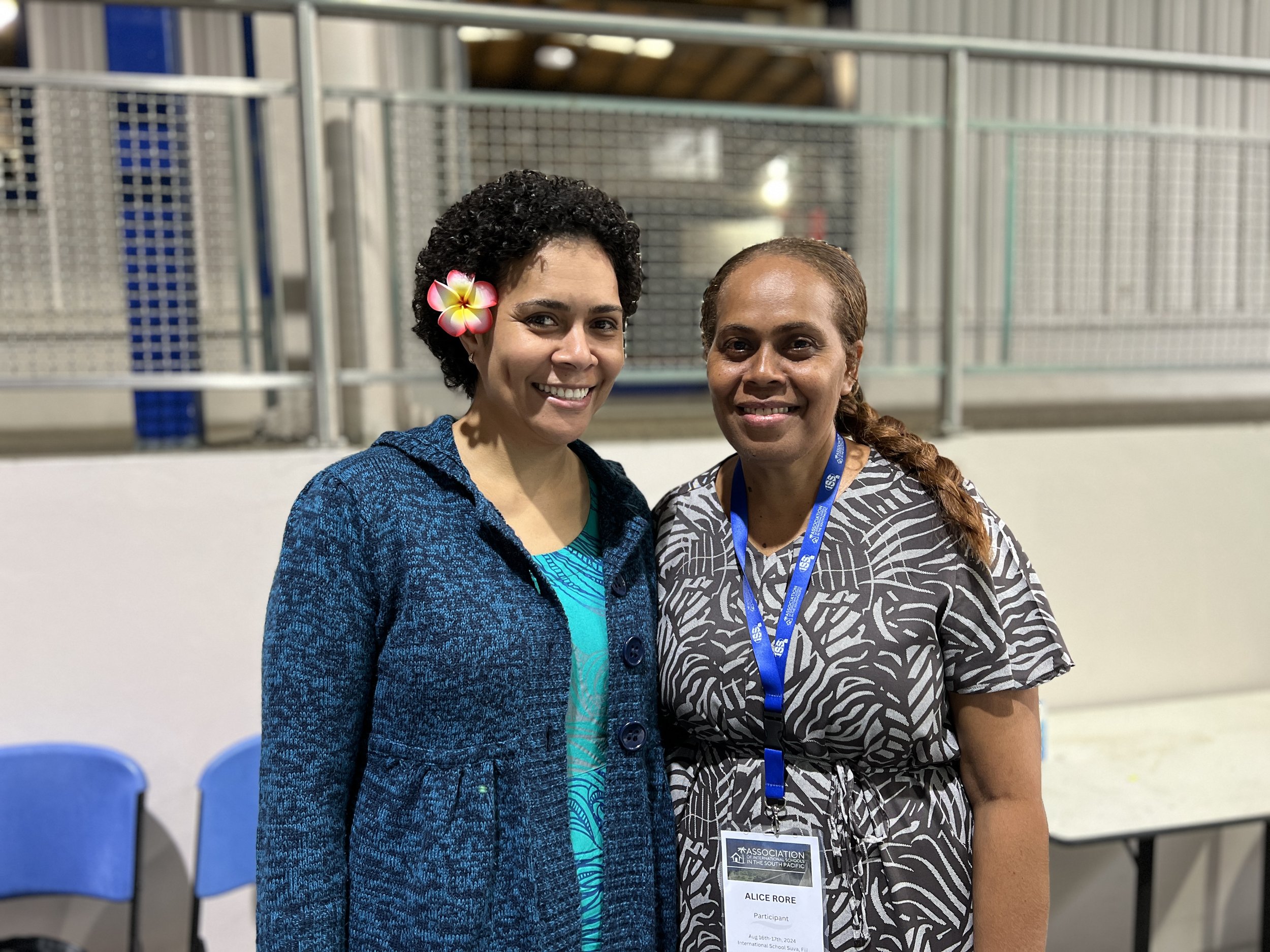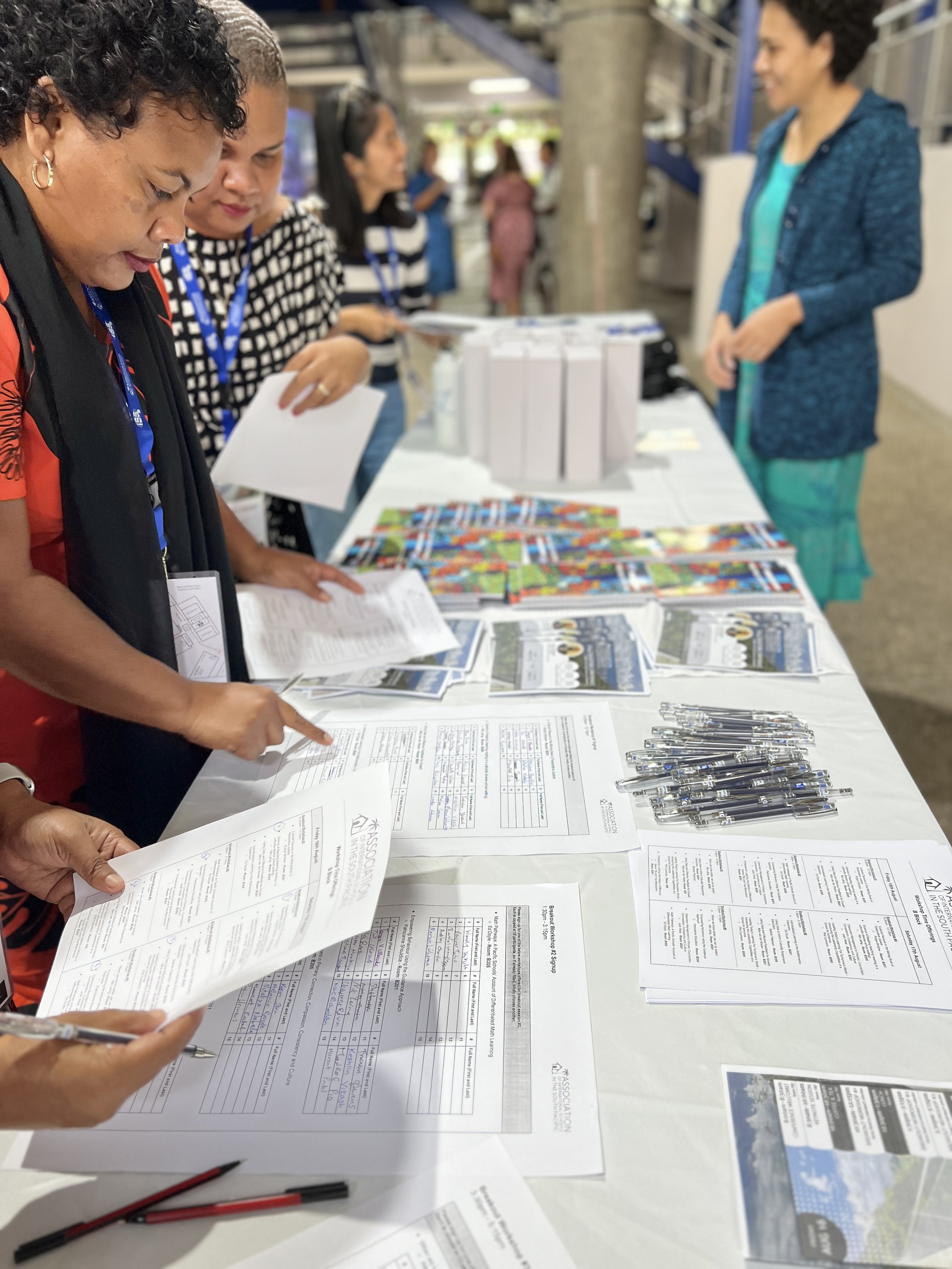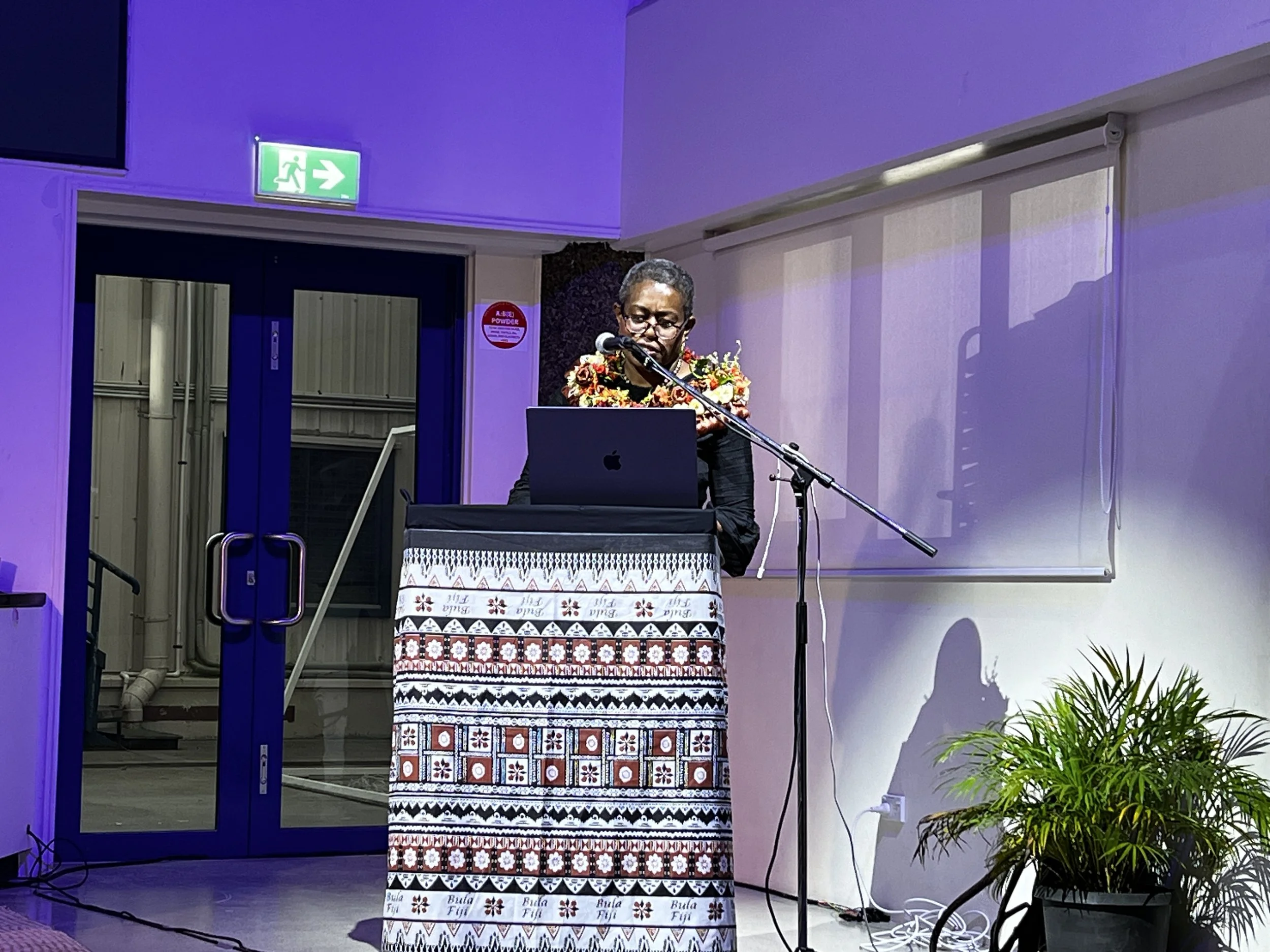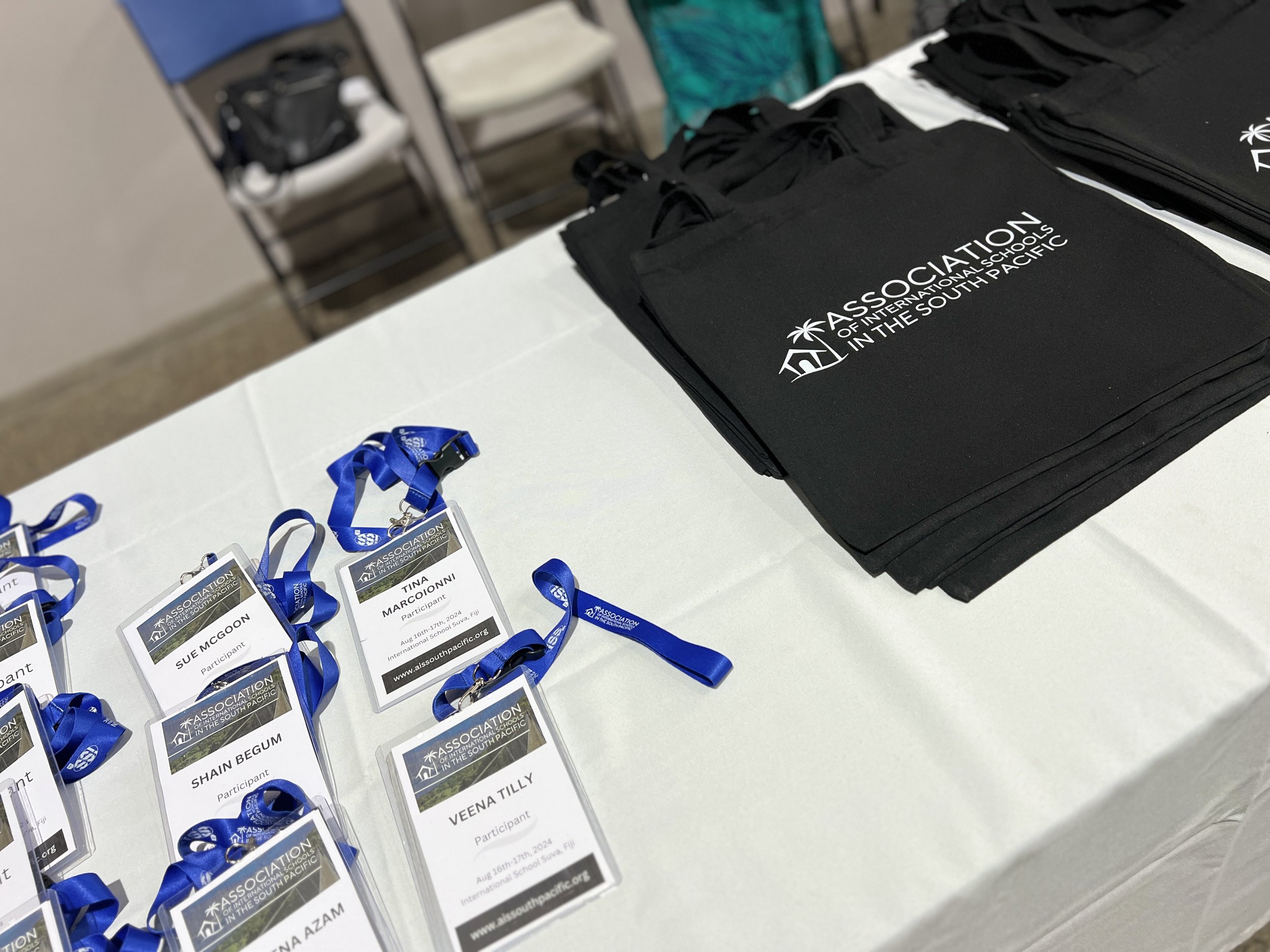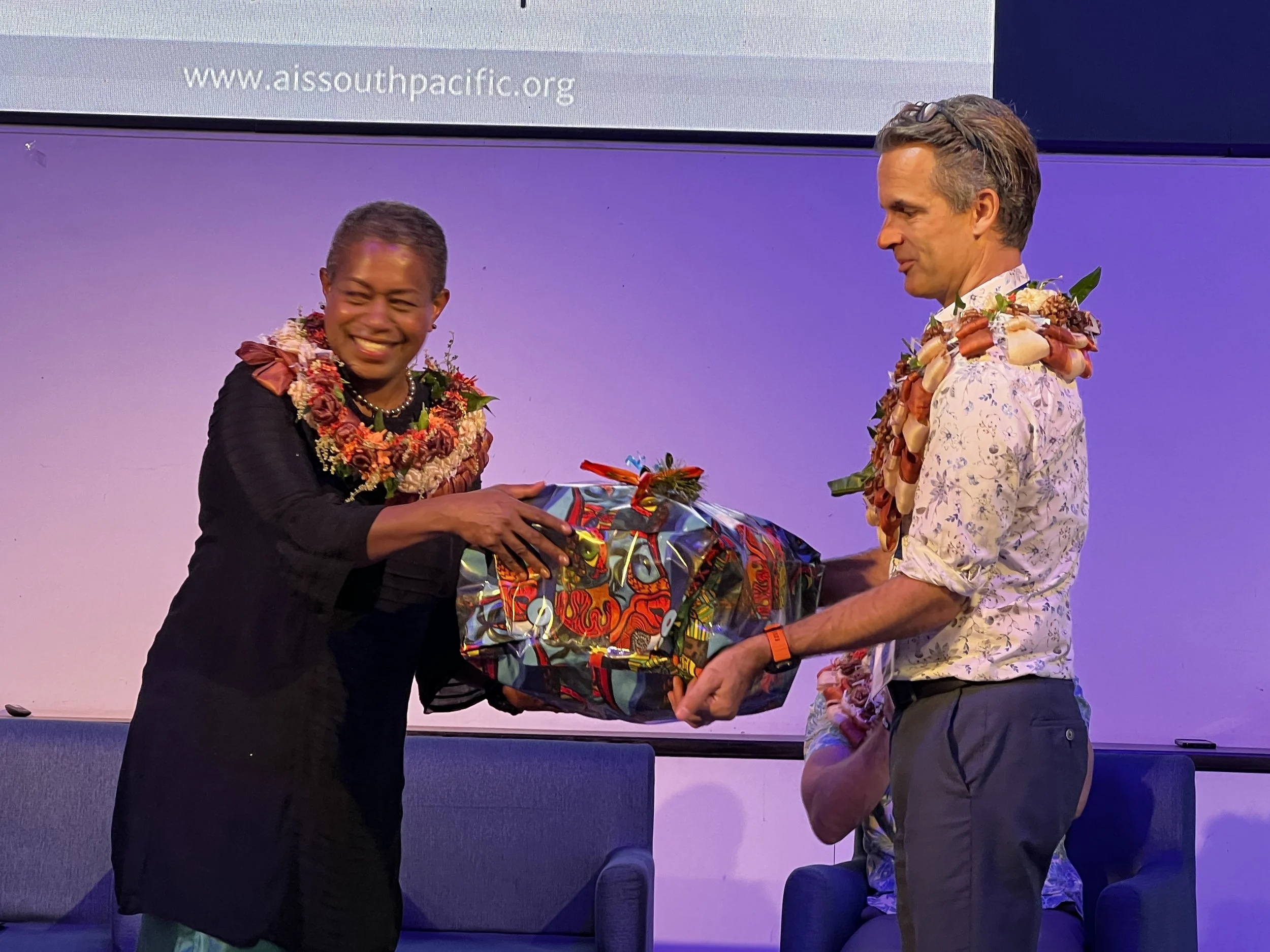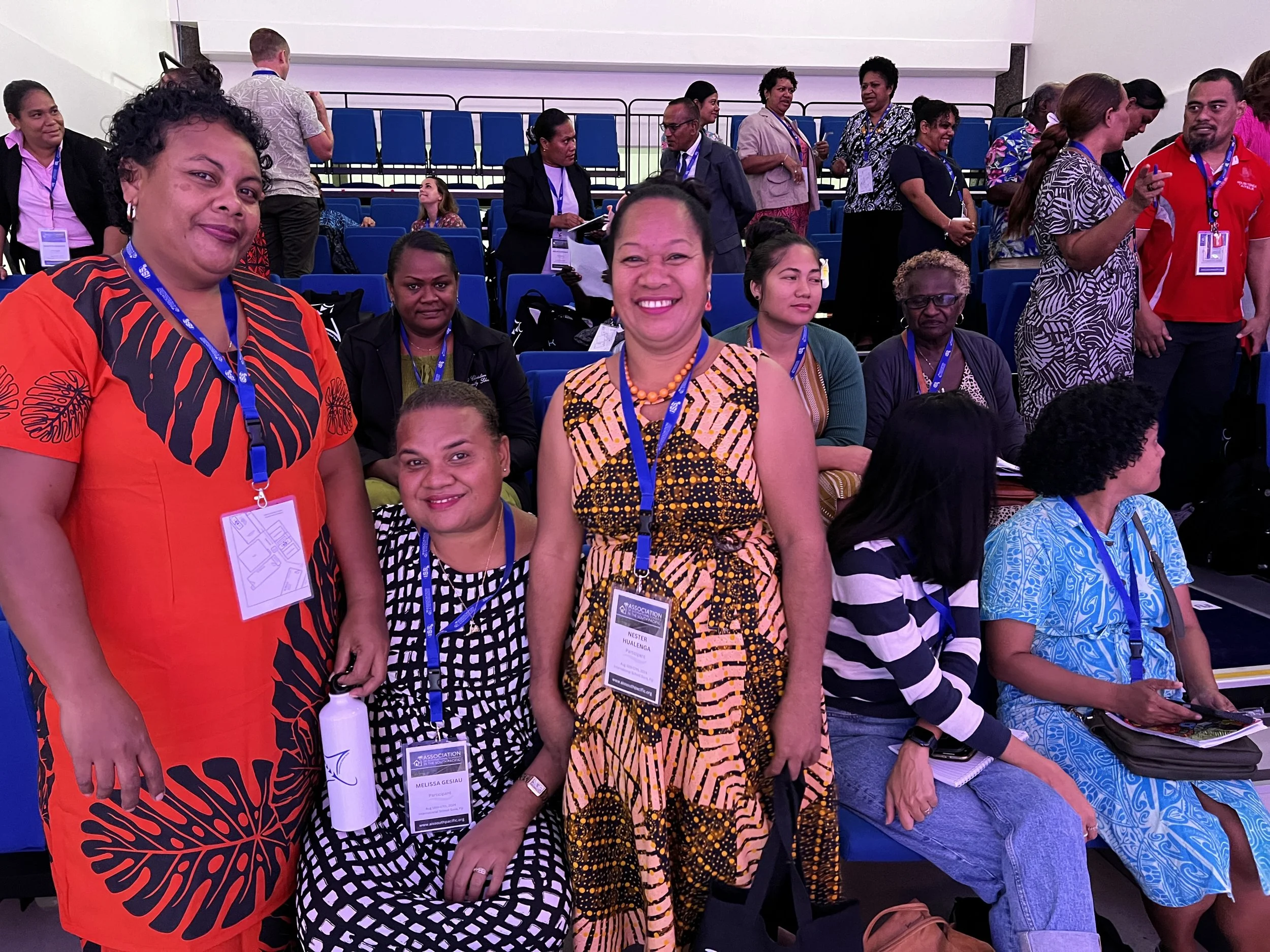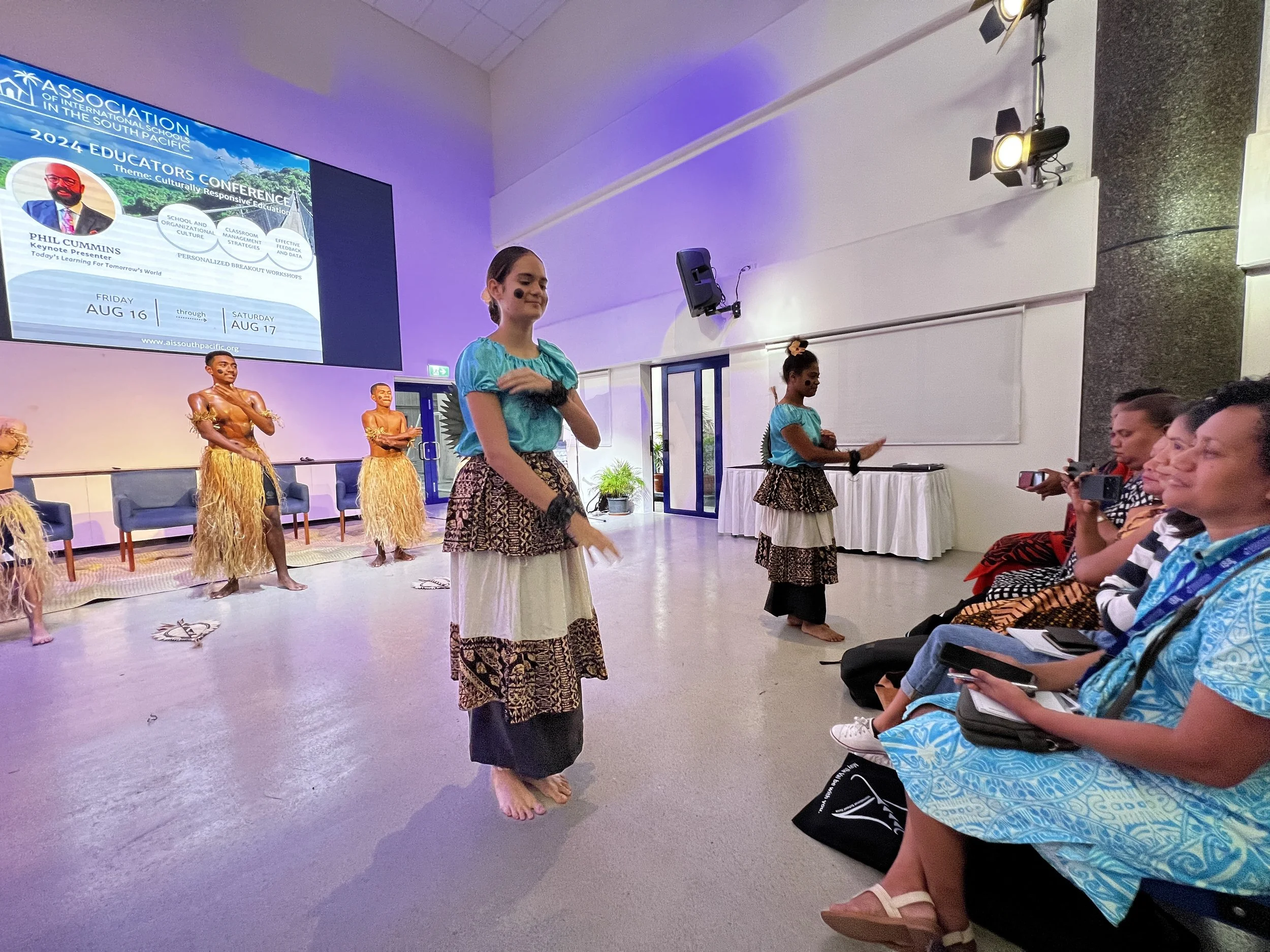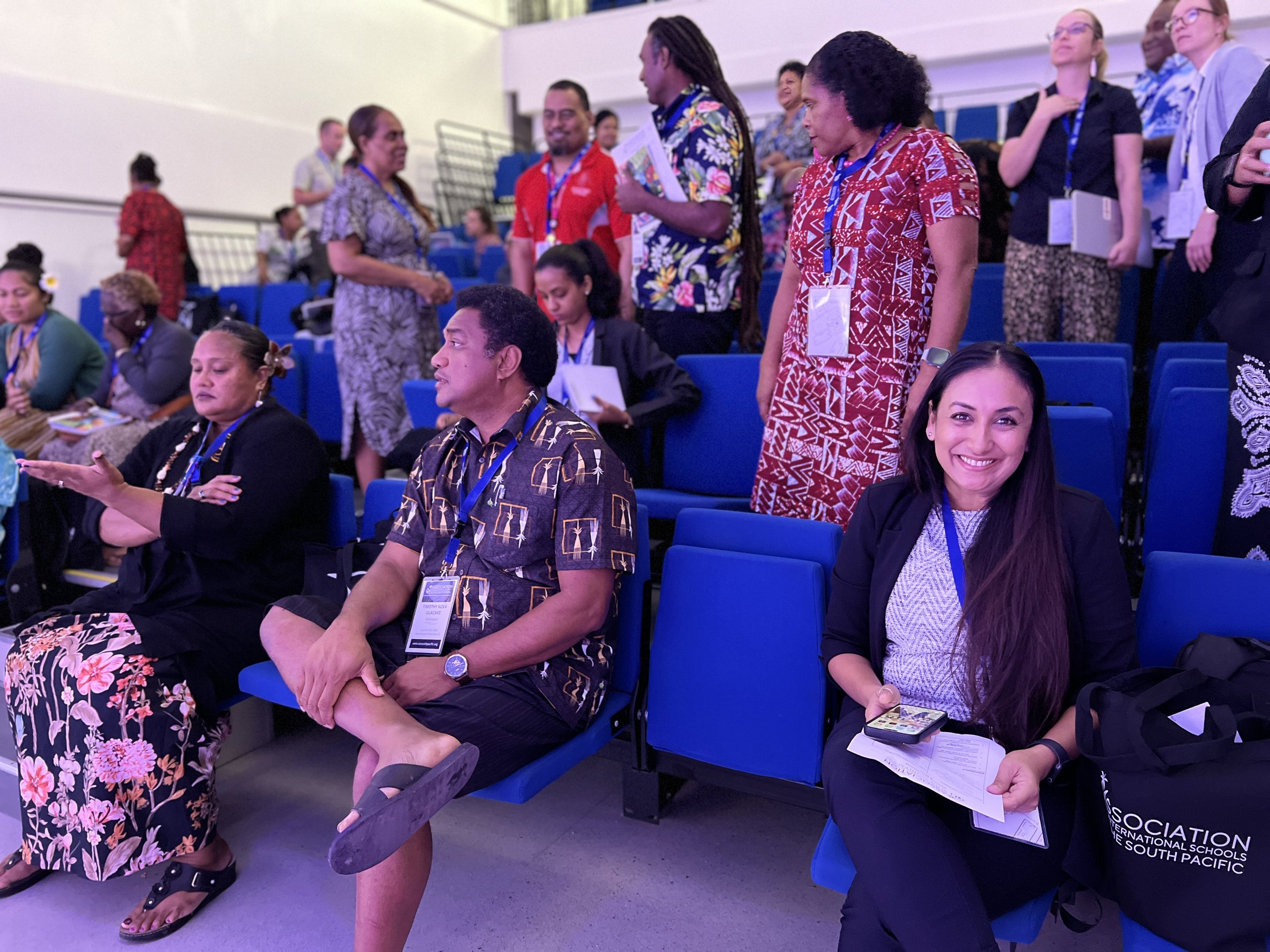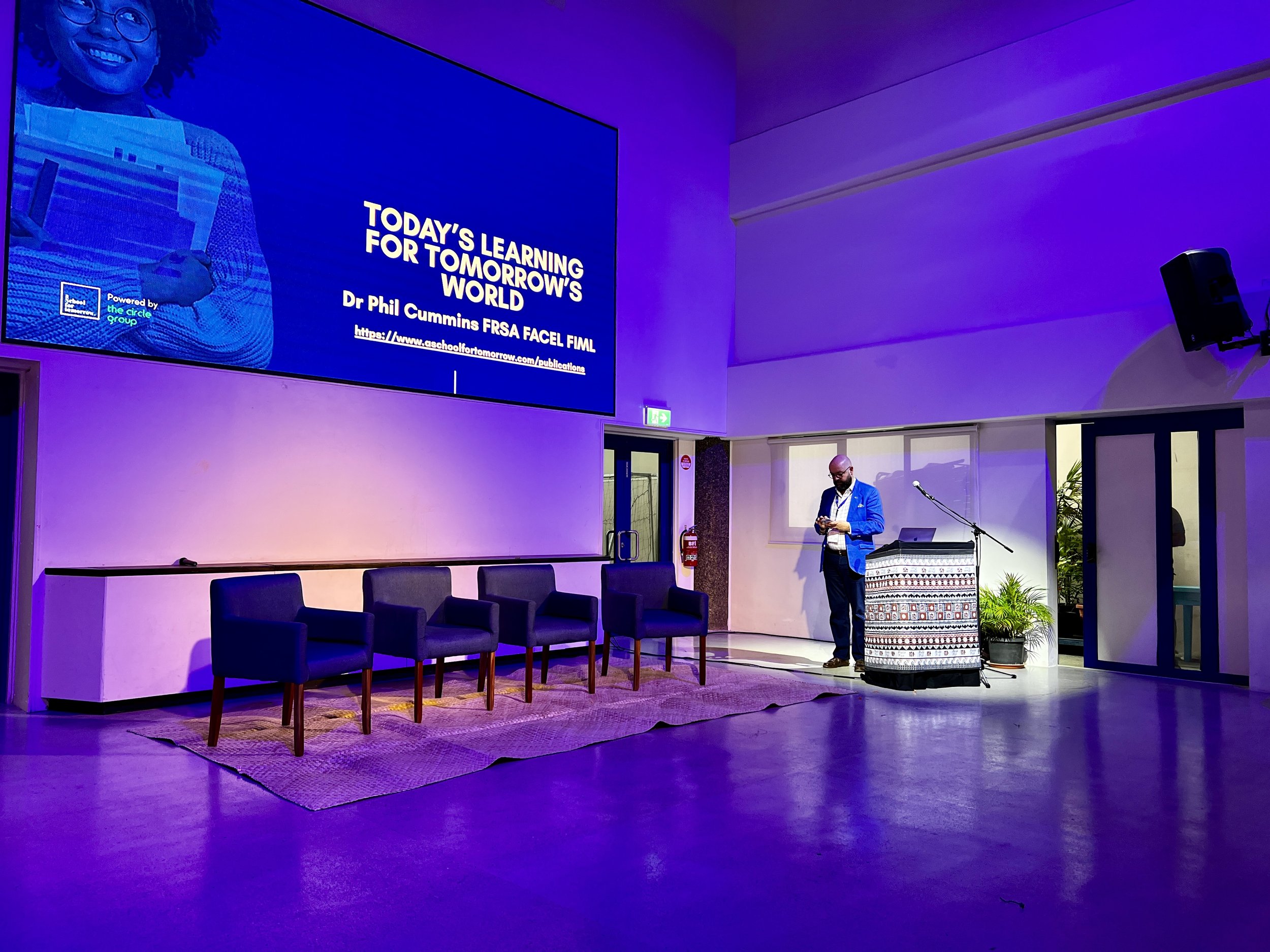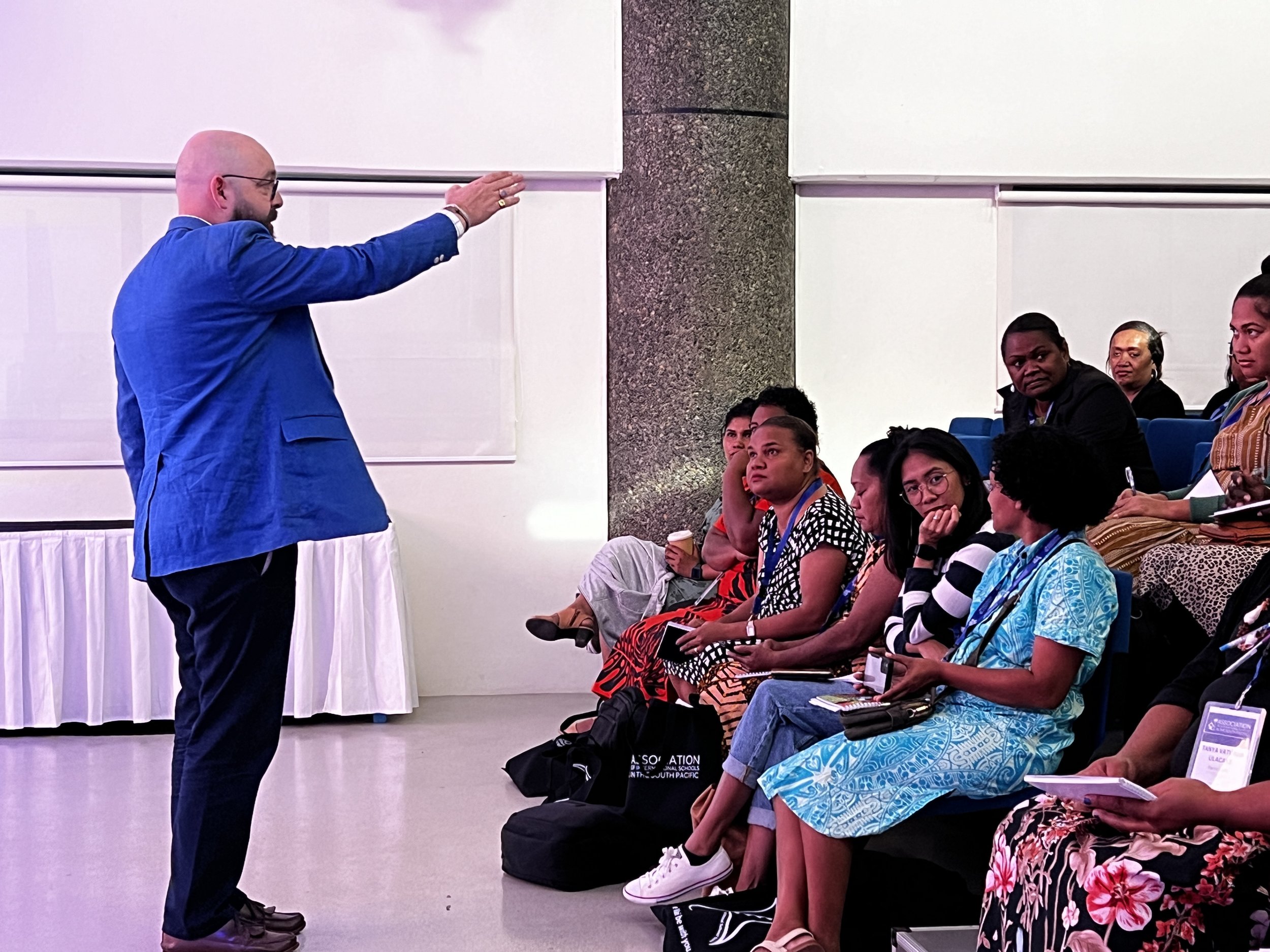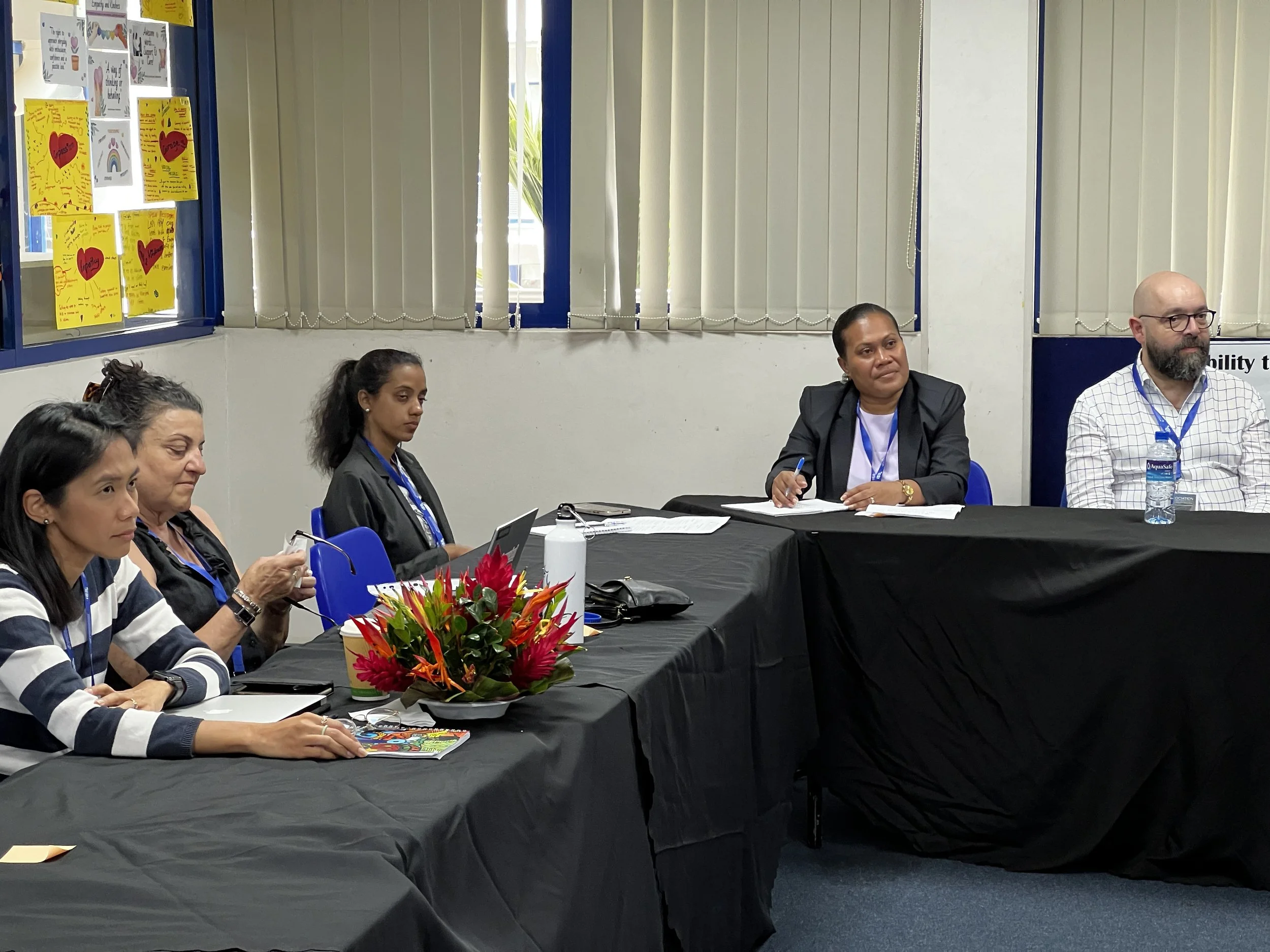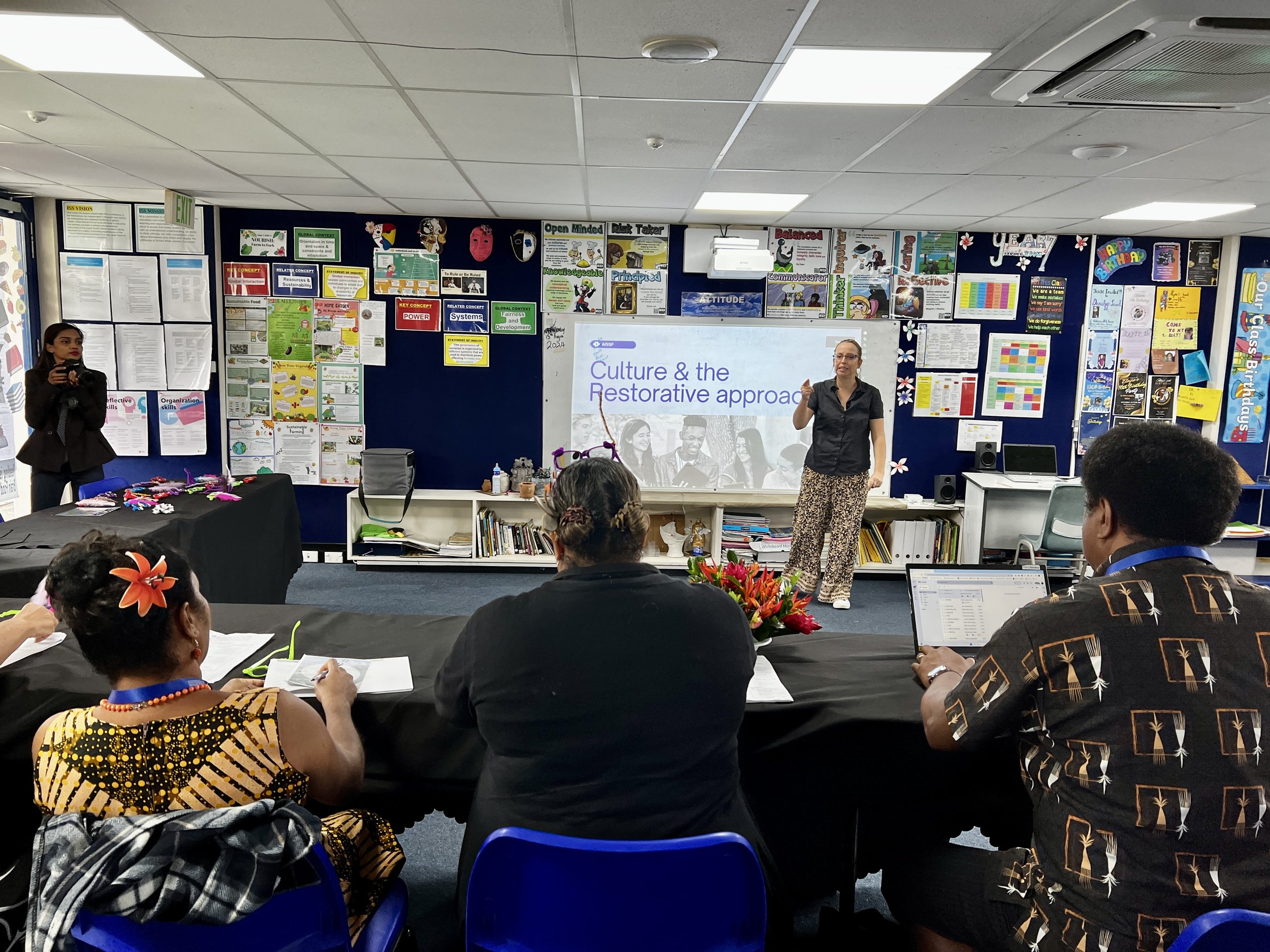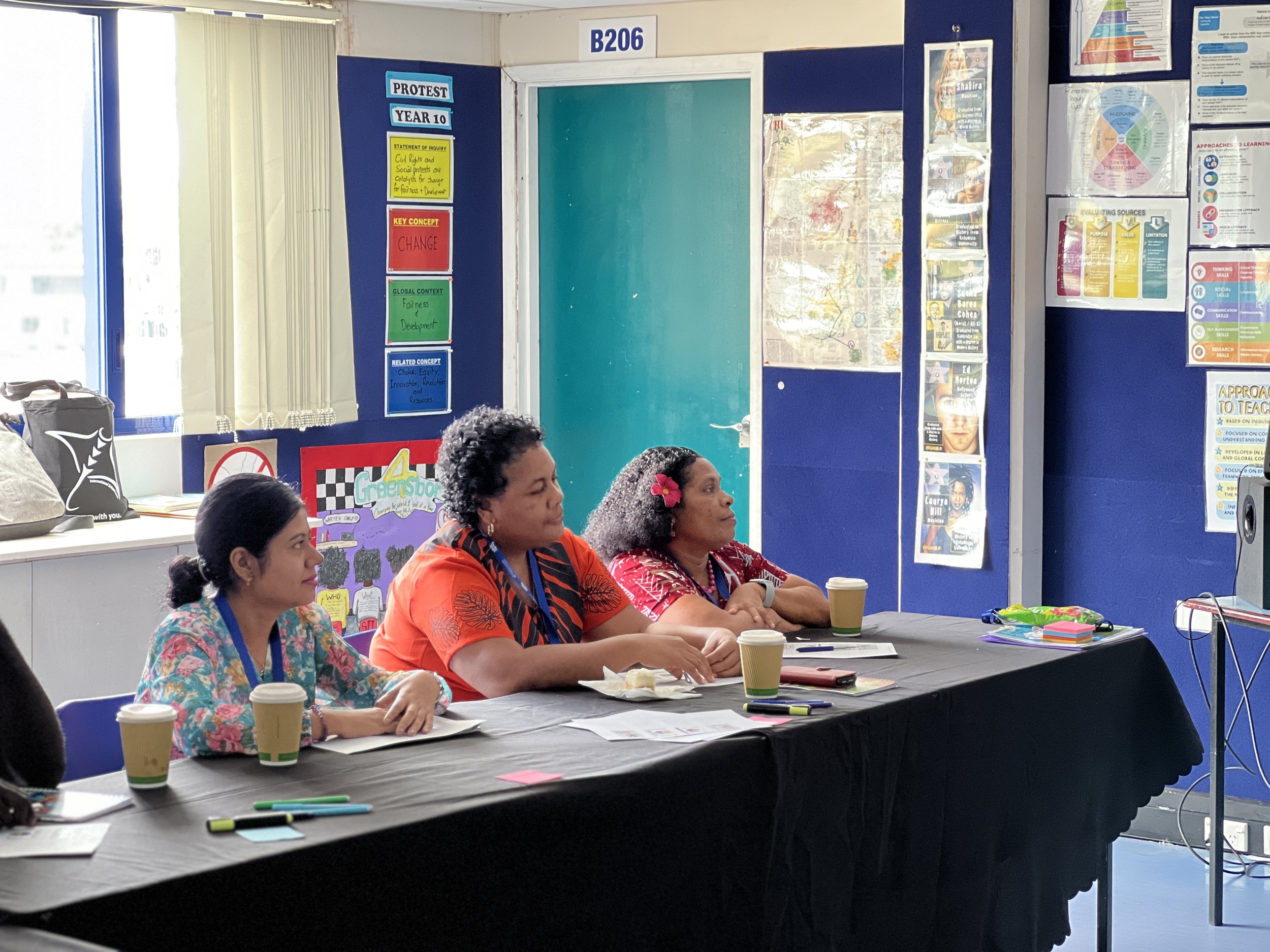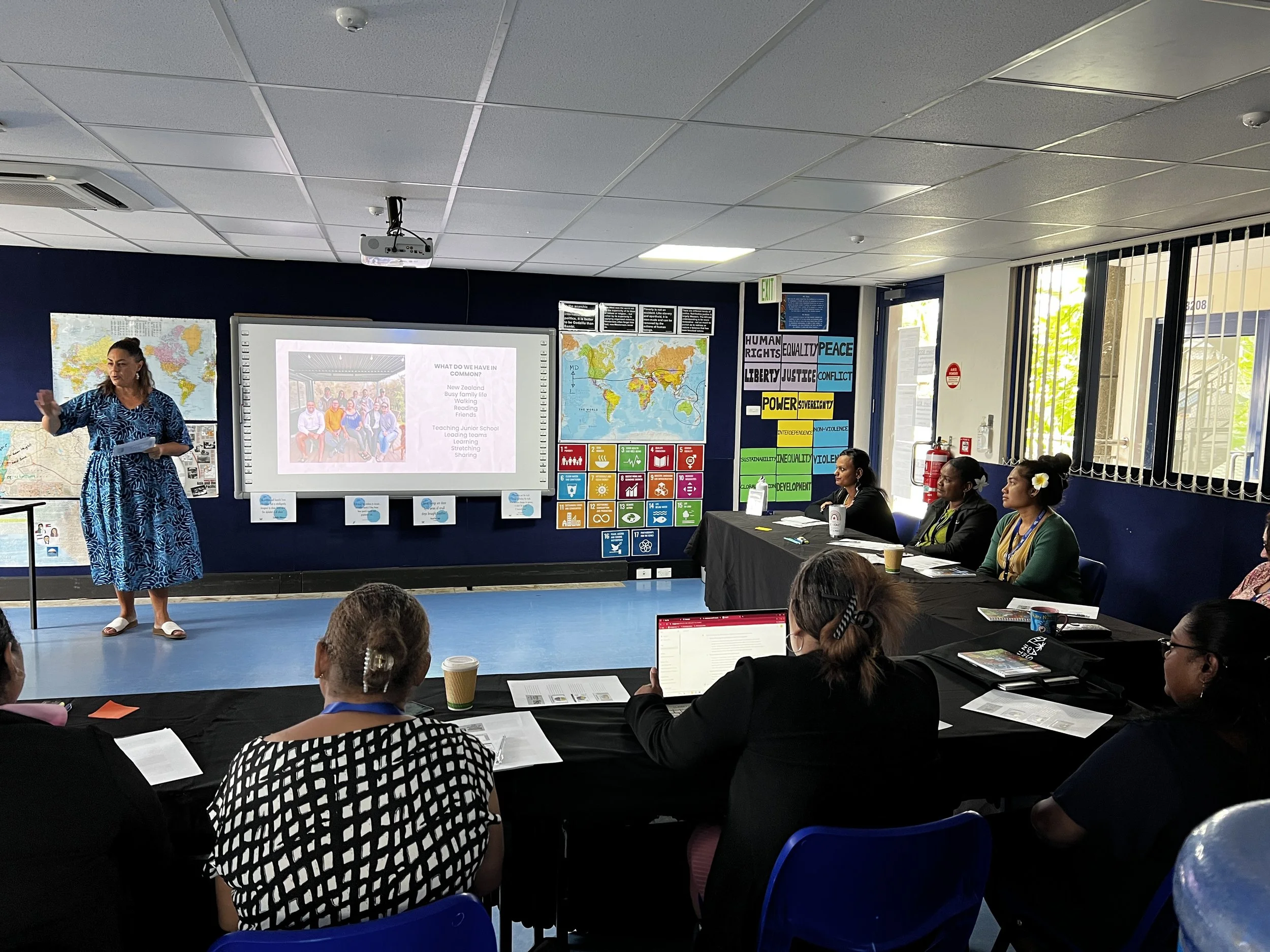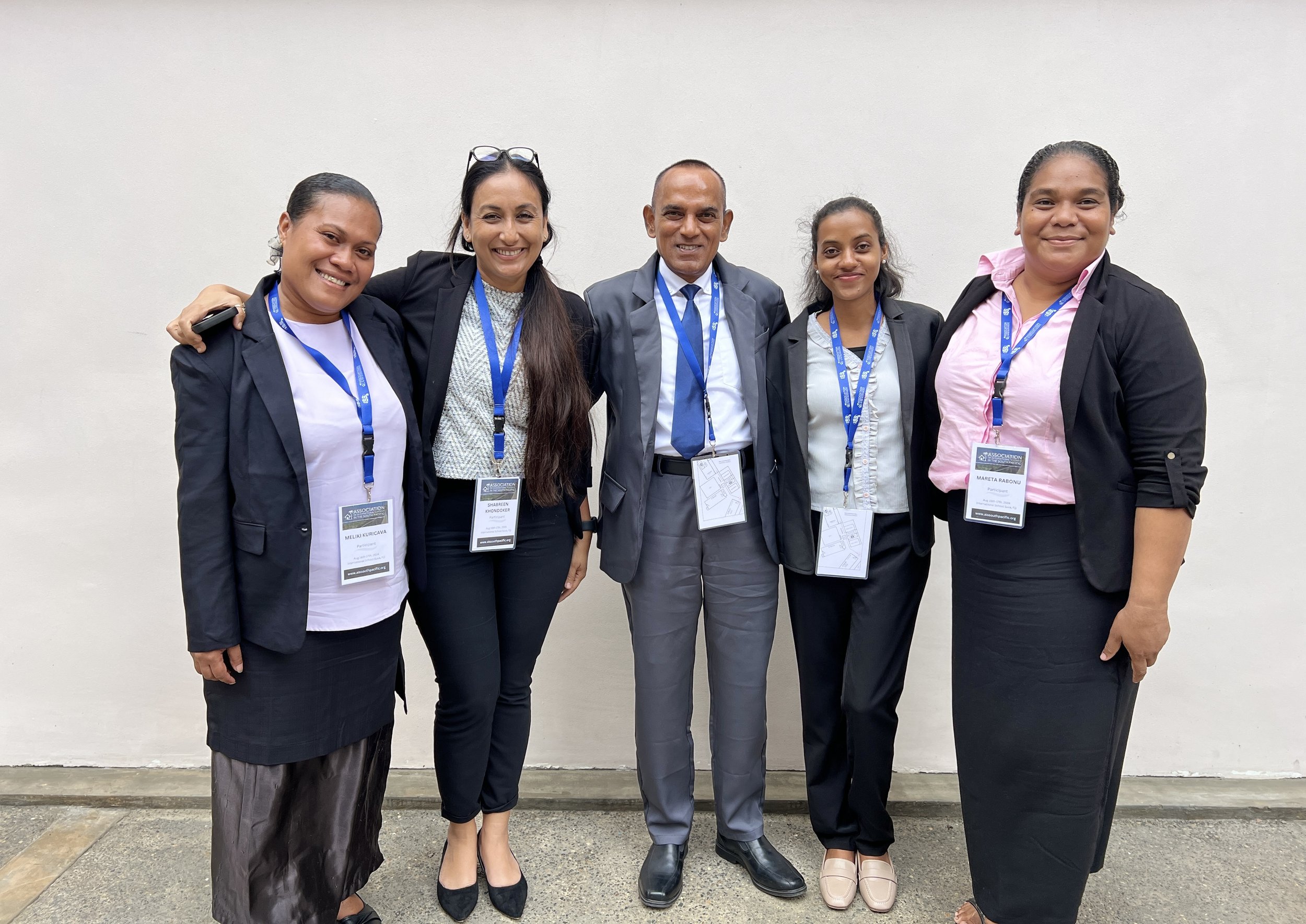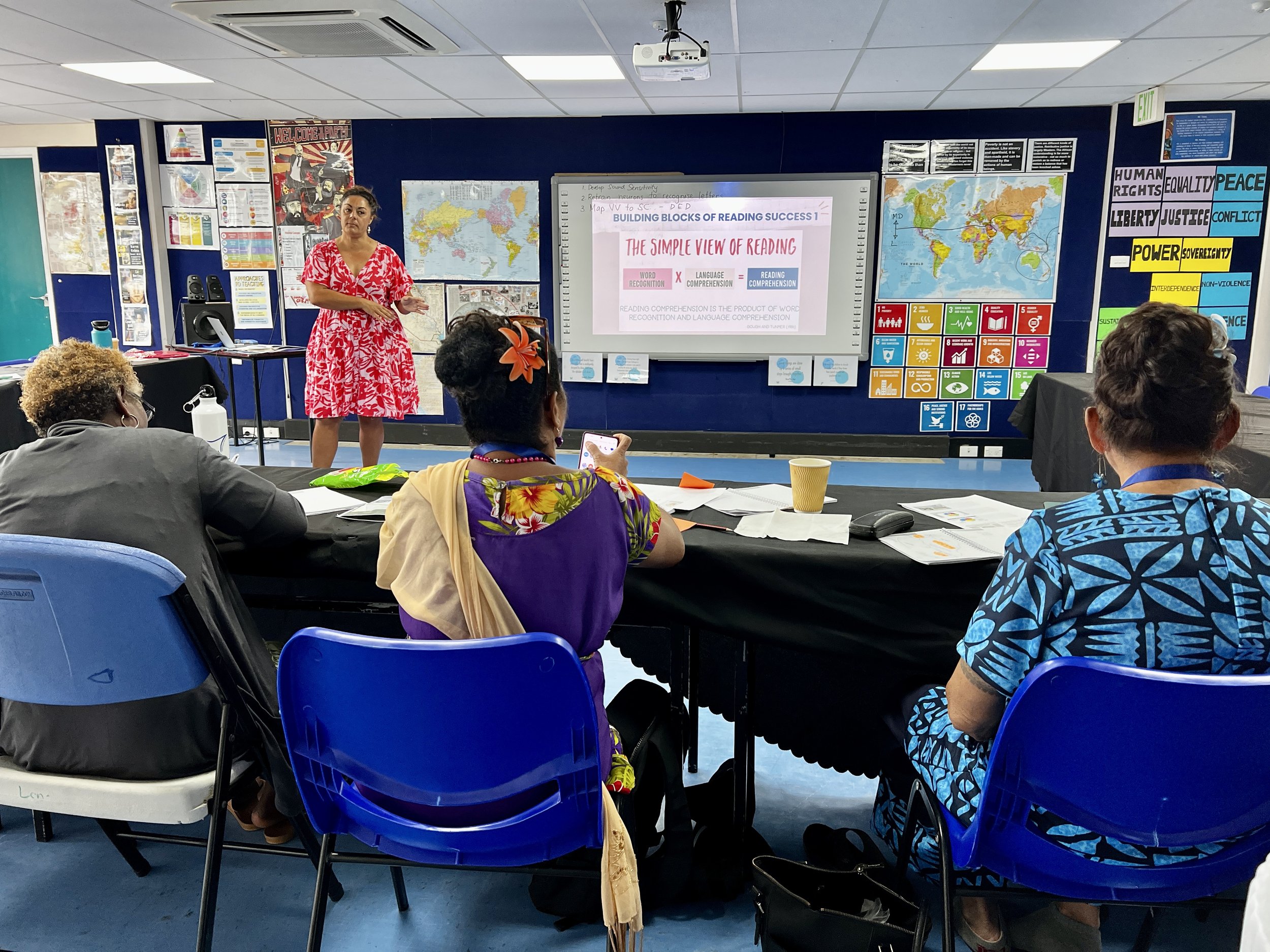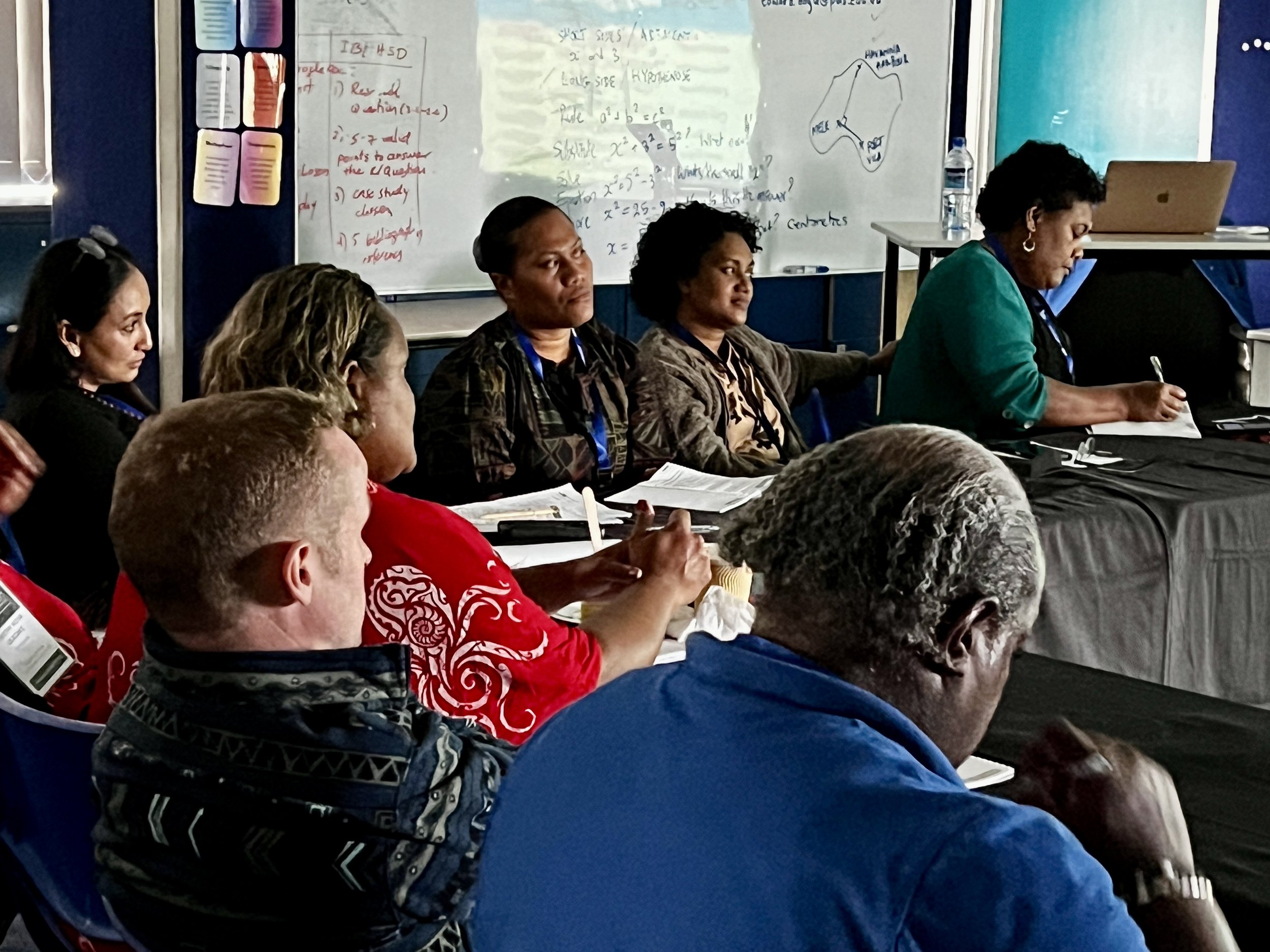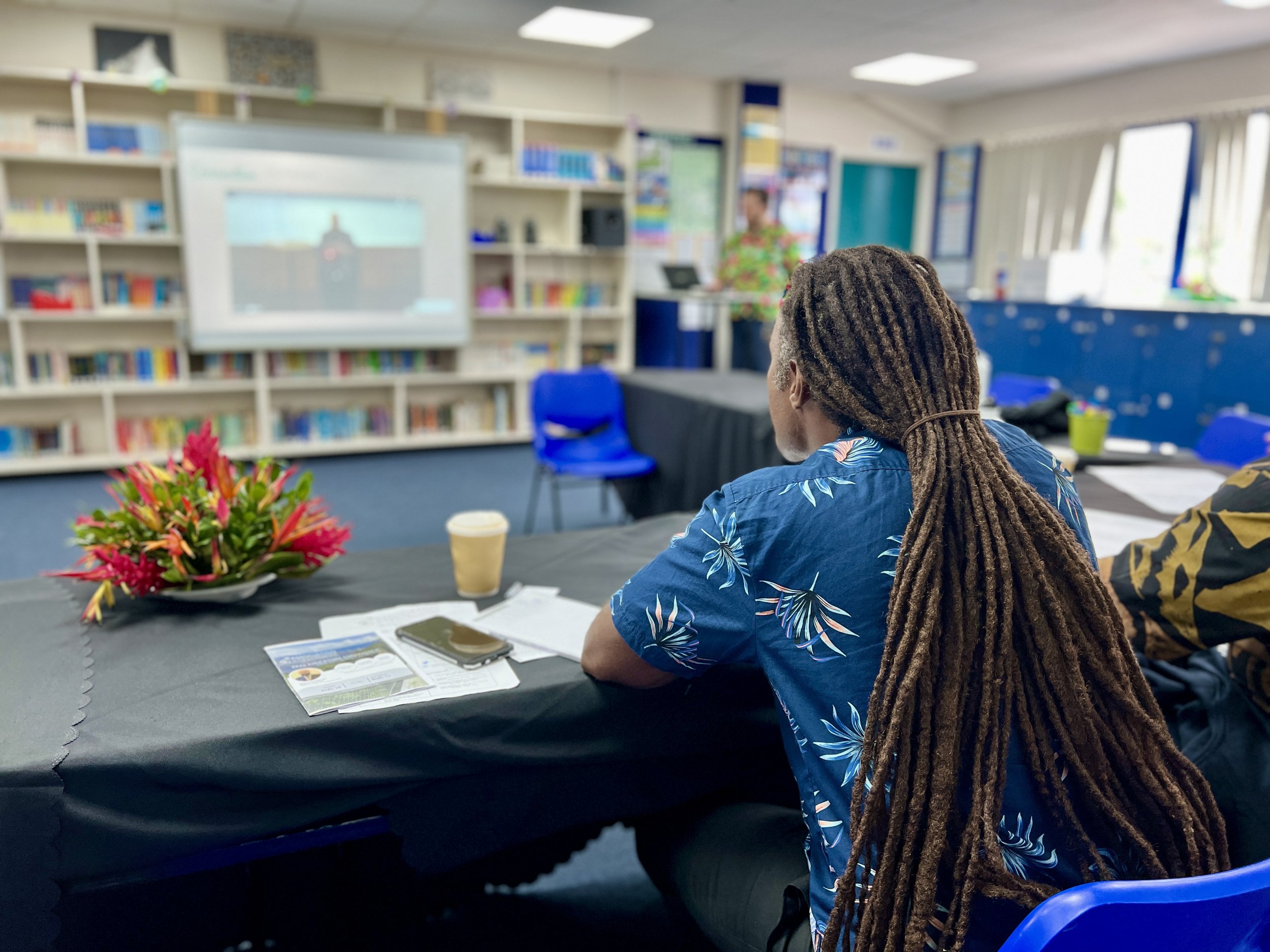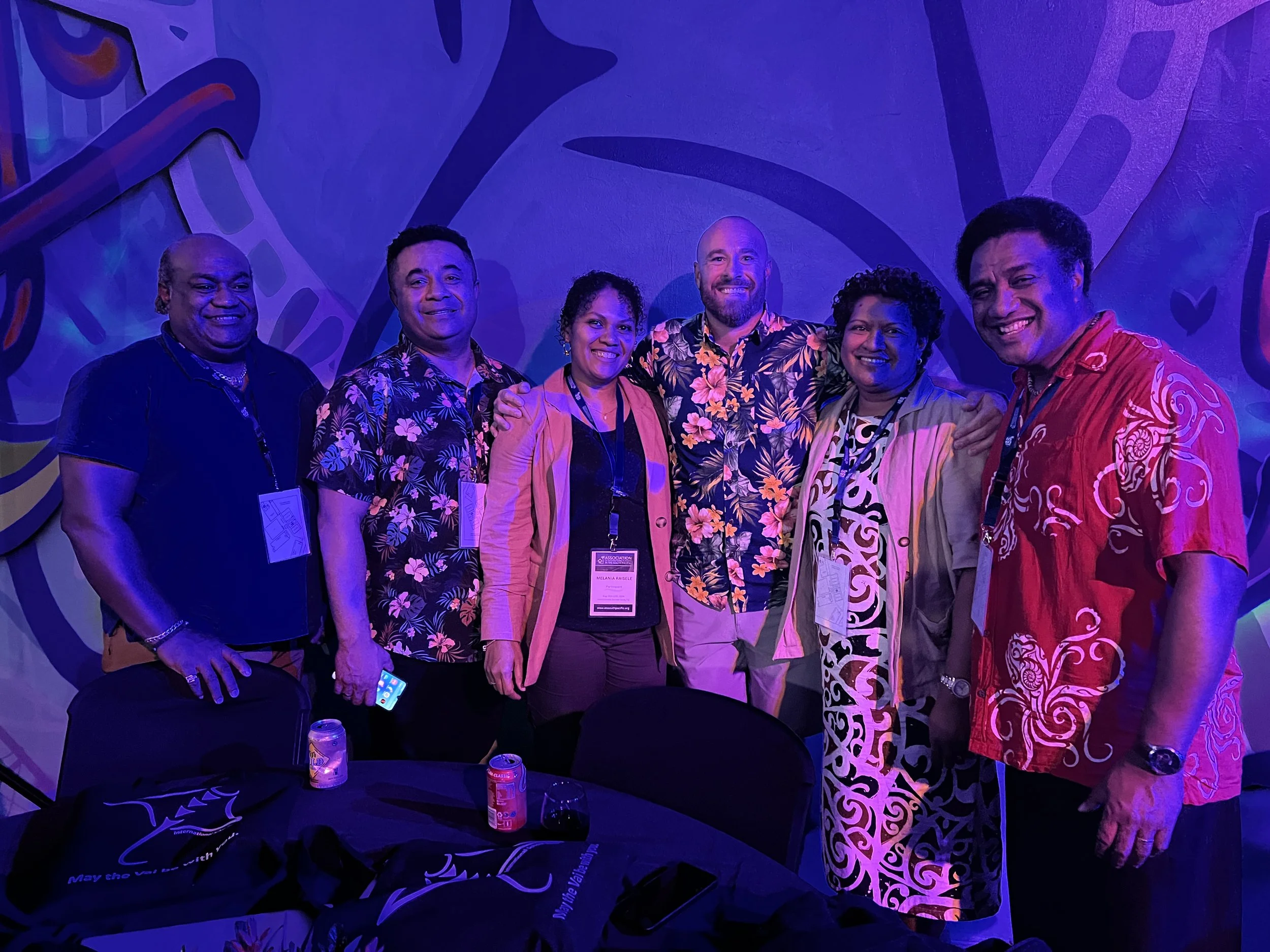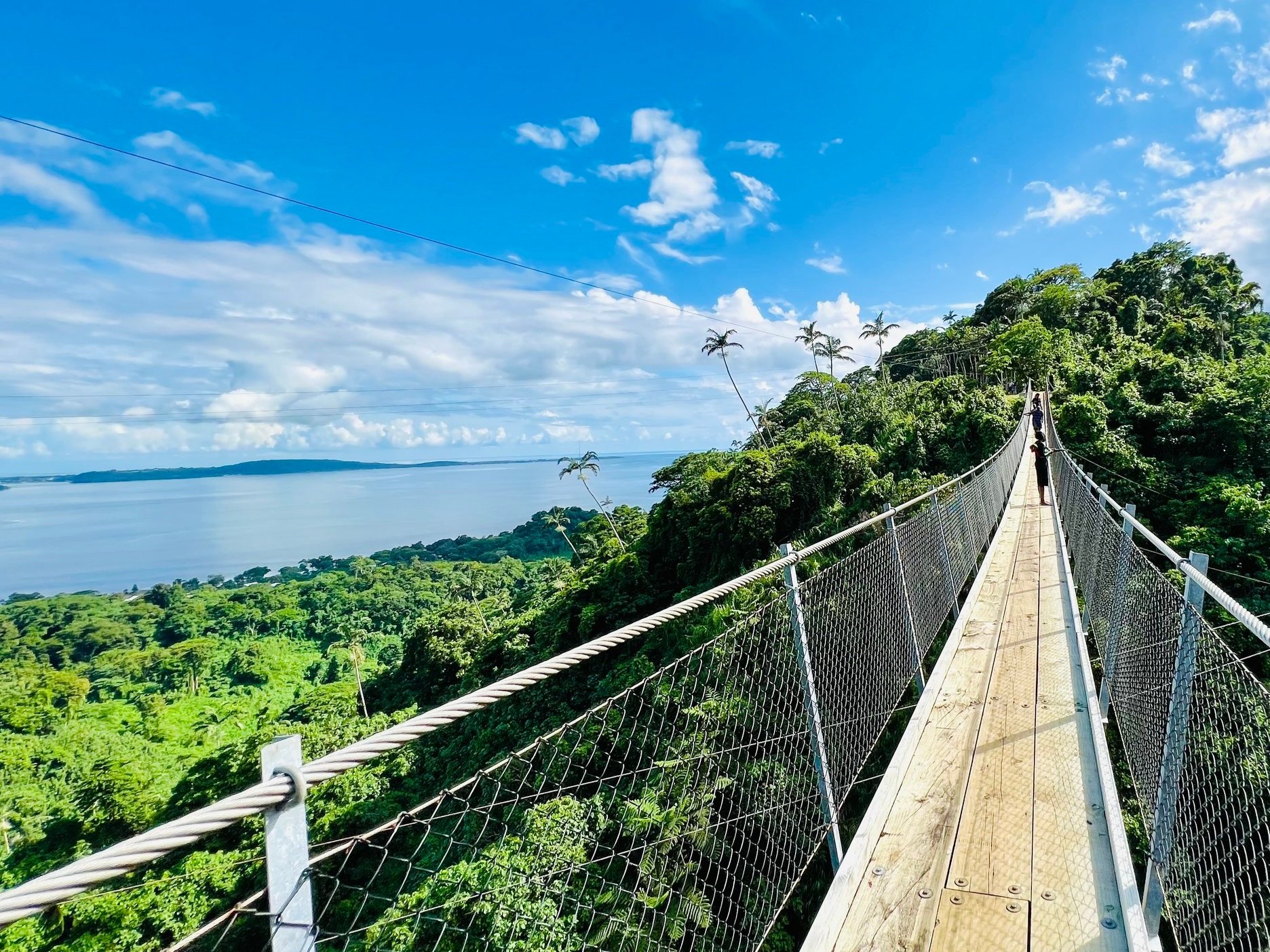
2024 Educators Conference
2024 Educators Conference
August 16th, 2024 - August 17th, 2024
Location: International School Suva
Cost: Free
Registration Closed
Conference concluded. Please see photos from 2024 below
The Association of International Schools in the South Pacific (AISSP) hosts professional learning conferences based on the collaborative insight from member schools’ strategic needs identified, as well as current global trends in best practices in education.
AISSP’s 2024 educators professional development conference will be August 16th-17th, 2024 with focus on the following areas…
THEME: Culturally Responsive Education
School & Organizational Culture
Effective Feedback & Data
Classroom Management Strategies
Choice of Breakout Workshop Sessions
-
In this workshop, which builds on the conference keynote presentation, we will consider in detail the game-changing leadership competencies of a future-focused school, “a School for tomorrow.” We will explore what it means to lead culture, leadership, learning, performance, strategy, and systems & operations in your context. We will use analytical tools drawn from both Western scholarship and Australian indigenous traditions.
-
Dive into a session focused on differentiated learning in mathematics, tailored for educators navigating mixed learning environments. Explore the fundamental principles of individualised instruction, starting with pretesting to identify student strengths and weaknesses. Learn strategies to personalise learning journeys, allowing for increased student independence and targeted support through small group lessons. Discover the power of meaningful, open-ended learning tasks that engage students of all abilities and foster success in real-world math applications. Exchange insights and strategies for breaking down barriers to differentiated learning in mathematics.
-
What does neuroscience teach us about how brains learn to read? We are wired for speech, not print, so how do we support ALL learners to build the foundations for reading success? Many of our students come to school from diverse backgrounds, speaking various languages. How can we use what we know about brains to foster language comprehension and word recognition in our unique cultural context? Together we will unpack some key research on the Science of Reading, and bridge that into tools for instruction that you can take away.
-
Understanding and implementing the guidance approach to empower behaviour in the early years. Grounded in the belief that children flourish when equipped with essential skills, especially in self-regulation and emotional management, this workshop offers a deep dive into the guiding principles of the guidance approach. Through interactive sessions, explore the intricate interplay of beliefs, values, cultural nuances and social norms, shedding light on the origins of disruptive behaviour. Discover proactive alternatives and practical tips for environmental adjustments that empower educators to create a supportive, nurturing, and safe learning environment. Join us in fostering a classroom where every child's potential is not just realized but celebrated.
-
Explore the practice of restorative justice in multicultural settings. Specifically, we provide examples of how cultural norms and values influence a person's perceptions of wrongdoing and accountability. We visit culturally appropriate responses to challenging situations. We explore how learned communication styles influence conflict resolution. We provide practical examples of traditions or ceremonies that can foster a sense of belonging and create support networks. We then link these practices to the foundation for classroom behaviour management.
-
This interactive workshop focuses on the journey regional schools are taking to develop a pathway for consistent, evidence-based pedagogy in literacy (with reference to PVIS’ work with Learning Matters and the iDeaL approach to structured literacy). Participants will come away with an enriched toolkit for coaching teams, strengthening teacher practice and developing effective leadership tools to fit your context and culture. How do we bridge theory into practice? What tools are out there to support structured literacy development? What are some coaching tips that work?
-
An interactive workshop where teachers will explore the power of using data to drive culturally responsive teaching. Educators will examine the principles of culturally responsive instruction and the benefits of adopting an assets-based approach. Through a series of interactive discussions and hands-on activities, participants will work together to reflect on the complexities of data collection and analysis, and discover practical strategies for leveraging data from a variety of sources to create meaningful learning opportunities, support diverse student needs and foster a sense of belonging in the classroom.
-
Experience firsthand how Math Pathways, an innovative Australian EdTech company, is transforming math education. Explore how this proven program empowers teachers to deliver personalised learning experiences, enhances student engagement and autonomy. By streamlining data collection and administration tasks, Maths Pathways has allowed the focus to be on individualised instruction, fostering thriving math classrooms regardless of students' backgrounds. Walk through the experience of how Math Pathways is shaping a future of inclusive and empowering mathematics education.
-
Explore strategies and practices that build relationships with students to create a classroom community to assist with learning. We will approach the topic from the 4 c's: Culture, Connection, Compassion and Consistency, diving into each as a topic and exploring the role they have to play in our classroom environment. As a group, and individually, there will be a few case studies with specific student profiles as a practical exercise for our group to discuss and reflect upon.
-
As teachers, we constantly collect data from our students; through standardised tests, unit summatives, formatives, student work and observations during lessons. Our assessment approaches should result in a rich and reliable picture that illustrates ‘where our learners are at’ and ‘what needs to happen next’. Once we have clarity on that, we can provide our learners with feedback to help them learn next steps. Research on teacher effects confirms that students learn more when teachers are clear and easy to understand (Hattie, 2009; Titsworth, Mazer, Goodboy, Bolkan & Meyers, 2015). Explore how we can utilise data and provide feedback that really helps students.
-
This interactive workshop will engage existing and aspirant leaders in application of the research to enhance their own professional leadership growth. Leaders will be empowered through the design of strategic and sustainable professional learning purpose-fit to their identified needs.
Learning Intention: Transformational professional learning that empowers engagement in and design of a continuing and sustainable professional learning program.
Success Criteria: Participants will…
1) analyse contemporary evidence-based leadership practice.
2) engage with selected academic reading.
3) action plan a context specific professional learning program.
4) plan to share their learning both at the school level and beyond.
5) network with Pacific partners for enhanced practice.
TRANSFERS FROM NADI
For those arriving into Nadi, we will have free buses available to transfer participants to and from Suva. To take advantage of this, we will need your flight itinerary after registration. Alternatively, you can make your way to Suva on your own either by direct flight or private car.
LODGING
You are welcome to book accommodation on any website you prefer. For those wanting suggestions, a few good options include Tanoa Plaza Hotel, Quest Suva, Holiday Inn Suva, Grand Pacific Hotel, Peninsula Hotel, and De Vos on the Park.
2024 Photos

